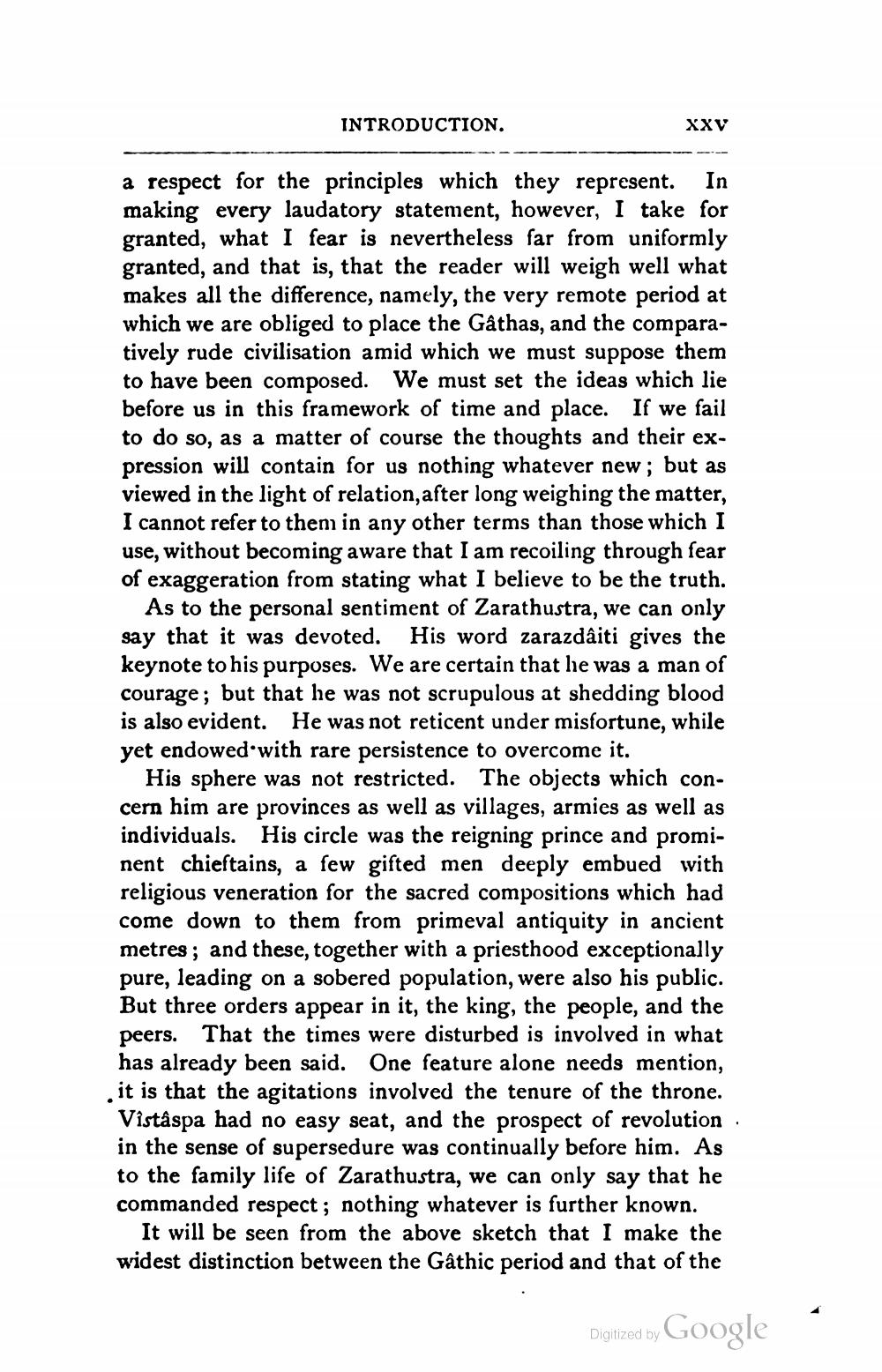________________
INTRODUCTION.
XXV
a respect for the principles which they represent. In making every laudatory statement, however, I take for granted, what I fear is nevertheless far from uniformly granted, and that is, that the reader will weigh well what makes all the difference, namely, the very remote period at which we are obliged to place the Gâthas, and the comparatively rude civilisation amid which we must suppose them to have been composed. We must set the ideas which lie before us in this framework of time and place. If we fail to do so, as a matter of course the thoughts and their expression will contain for us nothing whatever new; but as viewed in the light of relation, after long weighing the matter, I cannot refer to them in any other terms than those which I use, without becoming aware that I am recoiling through fear of exaggeration from stating what I believe to be the truth.
As to the personal sentiment of Zarathustra, we can only say that it was devoted. His word zarazdâiti gives the keynote to his purposes. We are certain that he was a man of courage; but that he was not scrupulous at shedding blood is also evident. He was not reticent under misfortune, while yet endowed with rare persistence to overcome it.
His sphere was not restricted. The objects which concern him are provinces as well as villages, armies as well as individuals. His circle was the reigning prince and prominent chieftains, a few gifted men deeply embued with religious veneration for the sacred compositions which had come down to them from primeval antiquity in ancient metres; and these, together with a priesthood exceptionally pure, leading on a sobered population, were also his public. But three orders appear in it, the king, the people, and the peers. That the times were disturbed is involved in what has already been said. One feature alone needs mention, . it is that the agitations involved the tenure of the throne.
Vistâspa had no easy seat, and the prospect of revolution in the sense of supersedure was continually before him. As to the family life of Zarathustra, we can only say that he commanded respect; nothing whatever is further known.
It will be seen from the above sketch that I make the widest distinction between the Gâthic period and that of the
Digitized by
Digitized by Google
+




